Filter by
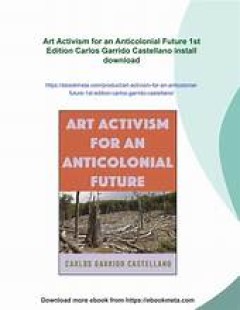
Art Activism for an Anticolonial Future
Analyzing the confluence between coloniality and activist art, Art Activism for an Anticolonial Future argues that there is much to gain from approaching contemporary politically committed art practices from the angle of anticolonial, postcolonial, and decolonial struggles. These struggles inspired a vast yet underexplored set of ideas about art and cultural practices and did so decades before …
- Edition
- -
- ISBN/ISSN
- 9781438485744
- Collation
- oer.unej.ac.id
- Series Title
- -
- Call Number
- -
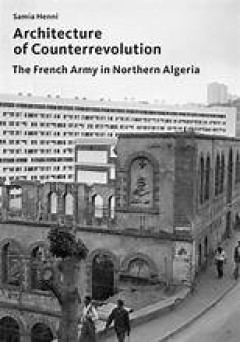
Architecture of Counterrevolution
After over 120 years of French colonial rule in Algeria, the growing aspirations for independence culminated in the Algerian Revolution of 1954, which lasted until 1962. In order to combat the uprisings, the French civilian and military authorities reorganized the entire territory of the country, swiftly erected new infrastructures and pursued building policies that were ultimately intended to …
- Edition
- -
- ISBN/ISSN
- 978-3-85676-452-4
- Collation
- oer.unej.ac.id
- Series Title
- Architectural Knowledge,
- Call Number
- -
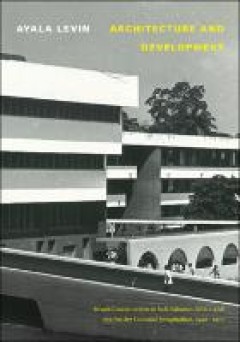
Architecture and Development
Ayala Levin charts the settler colonial imagination and practices that undergirded Israeli architectural development aid in Africa.
- Edition
- -
- ISBN/ISSN
- 9781478091820
- Collation
- oer.unej.ac.id
- Series Title
- -
- Call Number
- -
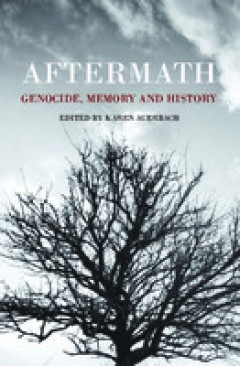
Aftermath
Aftermath: Genocide, Memory and History examines how genocide is remembered and represented in both popular and scholarly memory, integrating scholarship on the Holocaust with the study of other genocides through a comparative framework. Scholars from a range of disciplines re-evaluate narratives of past conflict to explore how memory of genocide is mobilised in the aftermath, tracing the devel…
- Edition
- -
- ISBN/ISSN
- -
- Collation
- -
- Series Title
- History
- Call Number
- -
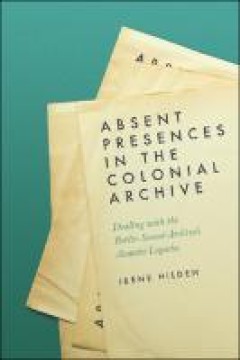
Absent Presences in the Colonial Archive
The colonial past through objects of sound The Berlin Sound Archive (Lautarchiv) consists of an extensive collection of sound recordings, compiled for scientific purposes in the first half of the 20th century. Recorded on shellac are stories and songs, personal testimonies and poems, glossaries and numbers. This book engages with the archive by consistently focusing on recordings produced under…
- Edition
- -
- ISBN/ISSN
- 9789462702189
- Collation
- oer.unej.ac.id
- Series Title
- -
- Call Number
- Colonialism and imperialism

A World You Do Not Know Settler Societies, Indigenous Peoples and the Attack…
A World You Do Not Know explores the wilful ignorance demonstrated by North America’s settlers in establishing their societies on lands already occupied by indigenous nations. Using the Innu of Labrador-Quebec as one powerful contemporary example, Colin Samson shows how the processes of displacement and assimilation today resemble those of the 19th century as the state and corporations scramb…
- Edition
- -
- ISBN/ISSN
- 9781912250394
- Collation
- oer.unej.ac.id
- Series Title
- Critical Human Rights Studies,
- Call Number
- University of London Press

The Ndebele, Frank Oates, and Knowledge Production in the 1870s = Encounters …
This open access book addresses a question fundamental to the histories of empire and Africa: at the point of the colonial encounter, how was knowledge made? How did different communities, with little or no prior contact, construct meaning about one another? Amidst huge changes in the politics and economics of a continent, on the cusp of almost complete colonization at the hands of European pow…
- Edition
- -
- ISBN/ISSN
- 9783031759635
- Collation
- IX, 125 hlm; ill., lamp.,
- Series Title
- -
- Call Number
- -

Ethnicity and the Colonial State
Ethnicity and the Colonial State analyses, through a comparison of three West African communities (Wolof, Temne, and Ewe), the ways in which ethnic labels and arguments are used (or omitted) in dealings with colonial administrations. It follows these strategies and choices over more than a century, between the conquest periods and independence. Where state structures were weak as a factor of gr…
- Edition
- -
- ISBN/ISSN
- 978-90-04-30735-3
- Collation
- oer.unej.ac.id
- Series Title
- Studies in Global Social History, Volume: 22
- Call Number
- -

Colonial Survey and Native Landscapes in Rural South Africa, 1850 - 1913
In Colonial Survey and Native Landscapes in Rural South Africa, 1850 - 1913, Lindsay Frederick Braun explores the technical processes and struggles surrounding the creation and maintenance of boundaries and spaces in South Africa in the nineteenth and early twentieth centuries. The precision of surveyors and other colonial technicians lent these enterprises an illusion of irreproachable objecti…
- Edition
- -
- ISBN/ISSN
- 978-90-04-28229-2
- Collation
- oer.unej.ac.id
- Series Title
- 16 Oct 2014
- Call Number
- -
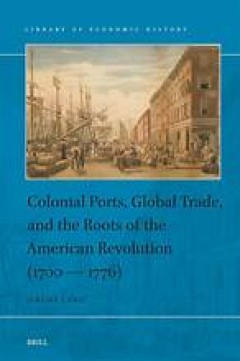
Colonial Ports, Global Trade, and the Roots of the American Revolution (1700 …
This book takes a long-run view of the global maritime trade of Boston, New York, and Philadelphia from 1700 to American Independence in 1776. Land argues that the three cities developed large, global networks of maritime commerce and exchange that created tension between merchants and the British Empire which sought to enforce mercantilist policies to constrain American trade to within the Bri…
- Edition
- -
- ISBN/ISSN
- 978-90-04-54270-9
- Collation
- oer.unej.ac.id
- Series Title
- Library of Economic History, Volume: 18
- Call Number
- -
 Computer Science, Information & General Works
Computer Science, Information & General Works  Philosophy & Psychology
Philosophy & Psychology  Religion
Religion  Social Sciences
Social Sciences  Language
Language  Pure Science
Pure Science  Applied Sciences
Applied Sciences  Art & Recreation
Art & Recreation  Literature
Literature  History & Geography
History & Geography